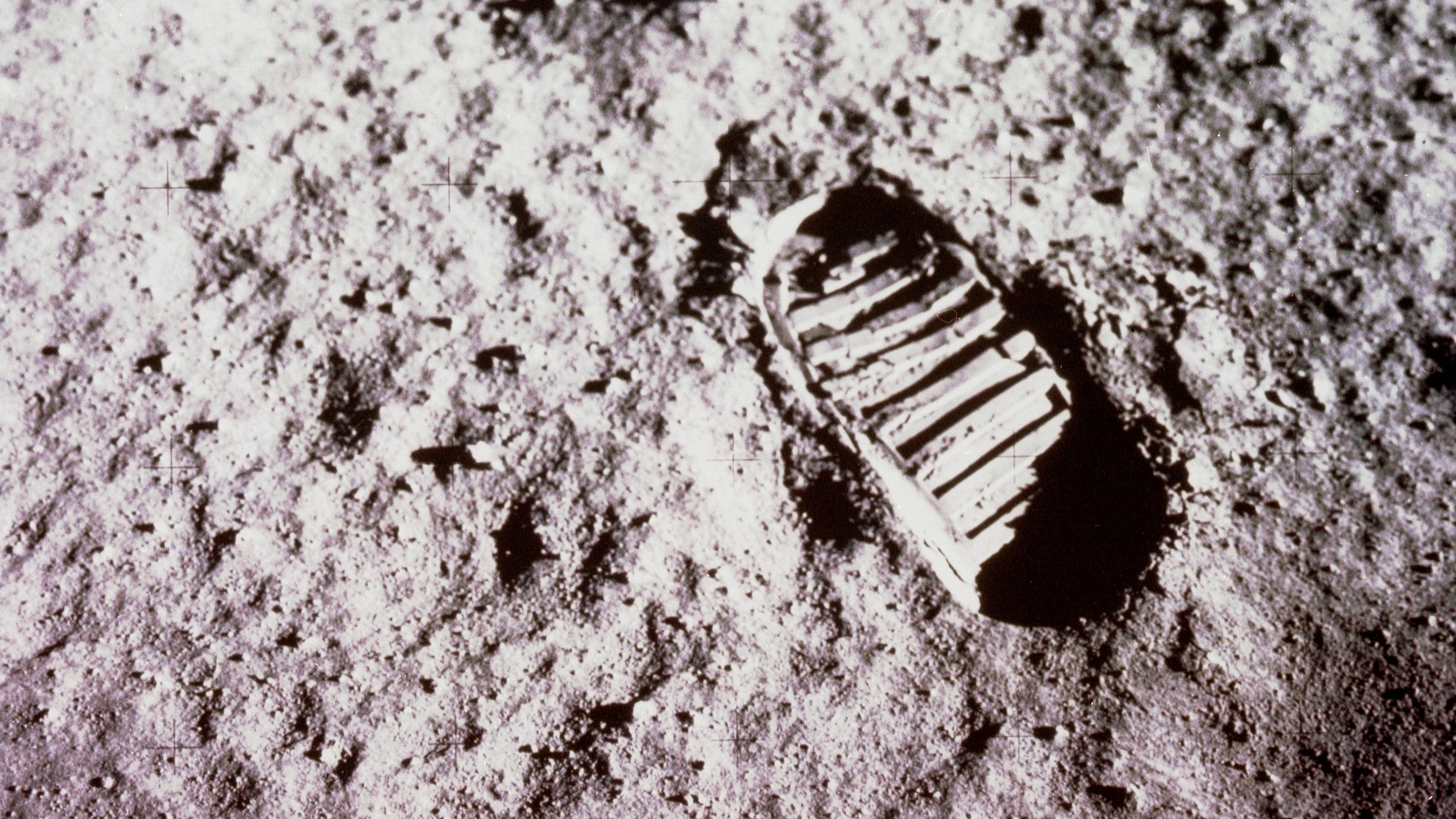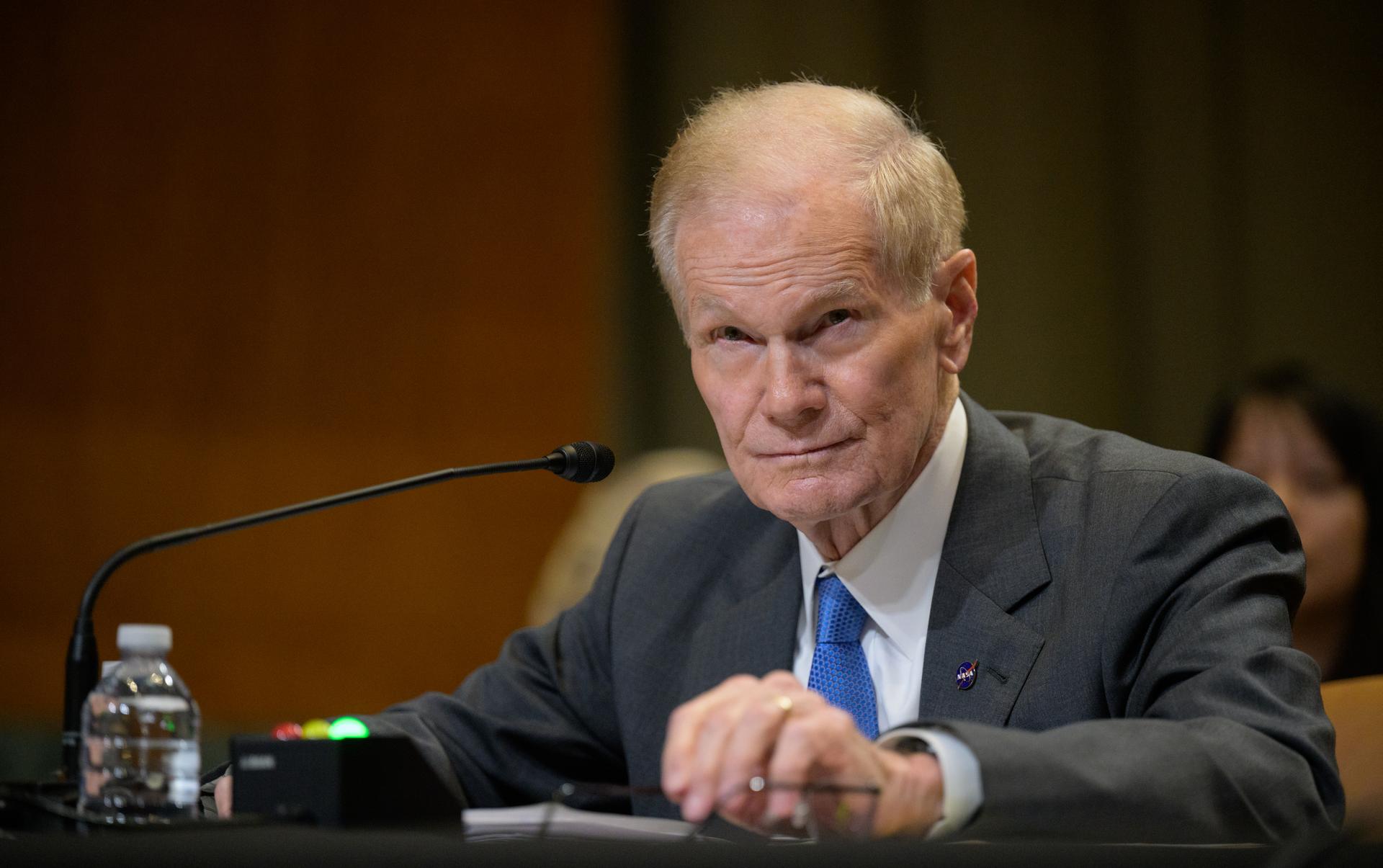
NASA administrator Bill Nelson is calling for unity among both major U.S. political parties amid the 55th anniversary of the first human moon landing on Saturday (July 20).
The former Democratic politician's new speech was released on YouTube; in it, he says "historic times, even what feels like divided times" that the United States feels today seems to echo much of the troubled climate of the 1960s, when the Apollo program was at its height.
While Nelson portrayed the 1960s as difficult for many Americans, he also emphasized that Apollo 11's landing on July 20, 1969 with NASA astronauts Neil Armstrong and Buzz Aldrin "was a triumph that came in the shape of a bootprint" in the speech, referring to a famous photo of Aldrin's boot impression in the moon's Sea of Tranquility region.
"Space can unite a troubled country in troubled times. And no moment united the country quite like when the Eagle [spacecraft] landed, as all of planet Earth watched from below," said Nelson, who at age 81 was in his mid-20s when the landing took place.
Related: For Henry Kissinger, NASA'S Apollo 11 lunar landing was about more than the moon

The year 2024 will conclude the latest federal election campaign in the United States. The non-partisan Pew Research Center has noted several unique features of the campaign between Republican nominee Donald Trump (also the former president between 2017 and 2021) and current President Joe Biden, a Democrat elected to the Oval Office in 2020.
Pew's research suggests a number of fissions among voters. There are disputes, for example, about whether Trump broke the law during his time in office due to his role in an attack on the U.S. Capitol on Jan. 6, 2021. Biden's mental and physical fitness for office is also a common topic of debate. Overall, there exists a lack of confidence in both leaders, with Pew tracking "large divides in voters' candidate preference by age, education, and race and ethnicity."
On Saturday (July 13), Trump was injured by gunfire during an assassination attempt at a rally in Pennsylvania. An investigation into the attempt is complex and at an early stage.
Nelson is a former Democratic senator and long-time politician of space matters; he also flew on the space shuttle with NASA in 1986 while part of a space committee. Biden appointed Nelson to the position of NASA administrator in 2021.
Related: NASA chief Bill Nelson brings a politician's eye to space agency

Saying this year has "politically divided times" as well as "unacceptable political violence," Nelson asked for the anniversary of Apollo 11 to "be a time of reflection and, I hope, of healing" as NASA aims to put boots on the moon again as soon as 2026 with moon-landing mission Artemis 3.
"Some may say that our brightest days are behind us," added Nelson. "But what will happen when humanity gathers once again, in shared reverence, to watch a crew of Artemis astronauts take to the heavens — and then when humanity sets foot, once again, on the surface of the moon? The day will be a triumph for all."
Nelson also alluded to the Artemis Accords, in which dozens of nations are committing to peaceful exploration norms led by NASA with a subset participating directly in moon exploration under the agreement. "When we can work together up there, we can live together down here — in the name of peace," he said.
The other major world groups aiming for human moon landings are Russia and China; both have been called out repeatedly in Congress and by the Pentagon in recent years for security concerns.
How the 2020s will measure up to the 1960s in future years is still in question, although incidents like the COVID-19 pandemic, the Jan. 6 event and the fall of Roe v. Wade in 2022 already have had deep implications on U.S. policy. In fact, numerous sources also point to the mid-twentieth century as being a moment of American protest and politics that still has repercussions today.
"The divisions over the Vietnam War and certainly the divisions over segregation were really, really powerful," Pulitzer-Prize winning author and historian Taylor Branch, who studies the civil rights movement, told NPR in 2022.
"Those things ripped the country and families apart back then," he added. "We've always had extremely divisive issues. Right now, I think what we lack is a more coherent, positive alternative."







